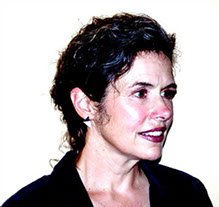
My practice focuses on lasting, positive change that increases well-being and life potential
Optimal living through a caring and holistic approach
Experience enhanced personal awareness, growth, and development
Jean Gibson, LCSW, PA
Jean Gibson provides life-changing psychotherapy to help clients life more fully. Jean has had more than 30 years in private practice, and personal & professional growth training.
Jean has been a Licensed Clinical Social Worker in practice for over thirty years.
Former Director of Training and Development at a psychiatric teaching hospital affiliated with the University of North Carolina at Chapel Hill
A.B., Psychology, MSW, Clinical Social Work, University of North Carolina at Chapel Hill; MEd, North Carolina State University, Raleigh, NC
Treatment Focus
The start of treatment involves looking at the issue that concerns the client. Changing current life patterns to improve the life situation or issue is the first priority. In addition, longer-term issues that might be interfering with the client are discussed. The frame of reference is usually enlarged to include a total picture.
When a person comes to see a therapist it is usually because whatever efforts they have made to take care of the issues have not worked for them. Increasing the client's awareness of their issues using various "talk therapy" approaches is done. The client takes a look at themselves using concepts from the various approaches. Psychotherapy helps a person to clarify what they are doing and then looks at ways to change their patterns to resolve the issues that are there.
Self-awareness takes care of many issues by simply allowing the client to see their part in the issue. Family systems offer a framework to understand not only oneself but the other people who are also involved in the life issue. A therapist once described how patterns start. Being born into a family is like coming into the third act of a play and then you have to figure out your script. Talk therapy really focuses on heightening awareness of how adaptation to the family role affects you today.
Getting involved with how to change patterns comes next. Most life situations with other people have a certain amount of what is called homeostasis, the need for stability. Often when a client starts to change, other people might resist the natural flow of how systems function. In addition, we have our own homeostasis and often resist change. Looking at earlier life patterns and how they apply today usually takes a longer time to integrate.
The style of therapy is interactive with a lot of feedback and conversation. After a rapport is established, if alternative treatments from Energy Psychology are appropriate for your situation they can be discussed. Energy Psychology is somewhat like a psychological scalpel and is best used carefully. If for some reason these approaches would not be useful, that also is explained.
Therapy is designed to increase the ability to respond to stress without overreacting and getting overwhelmed. Generally, after a period of getting a handle on the issues, therapy can be more effective coming every two weeks. Therapy is a more gradual change after the initial start. The length of therapy varies from person to person.
